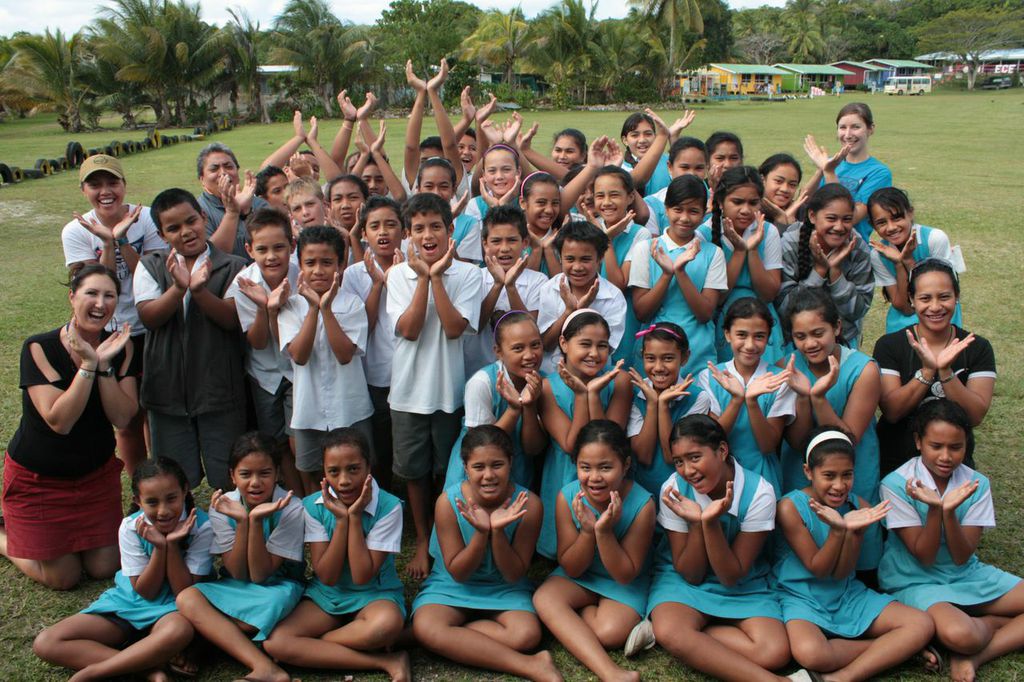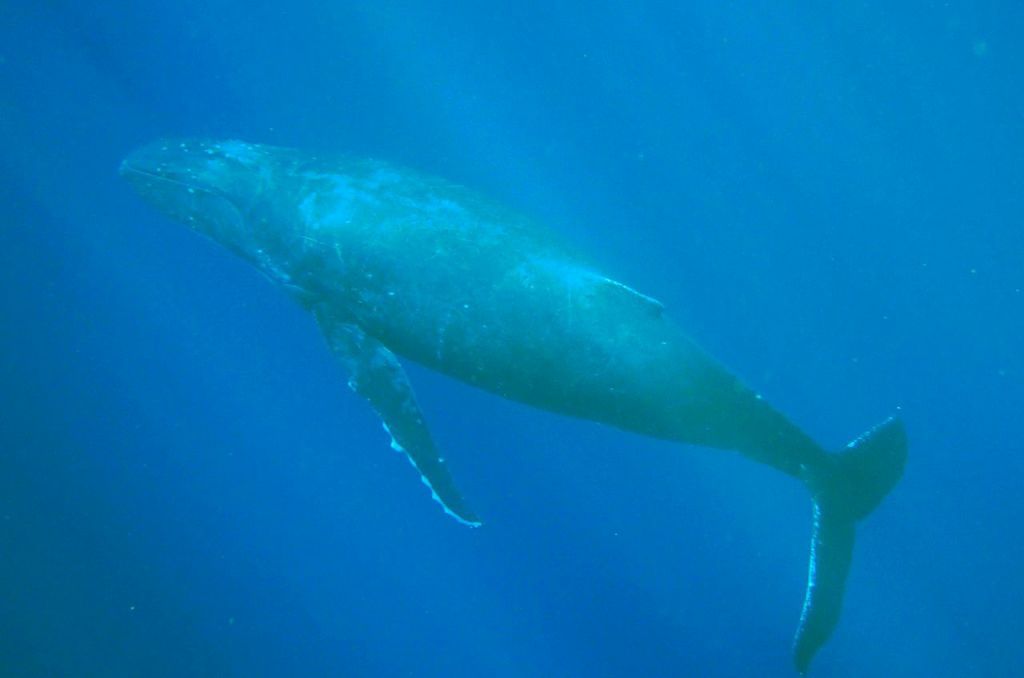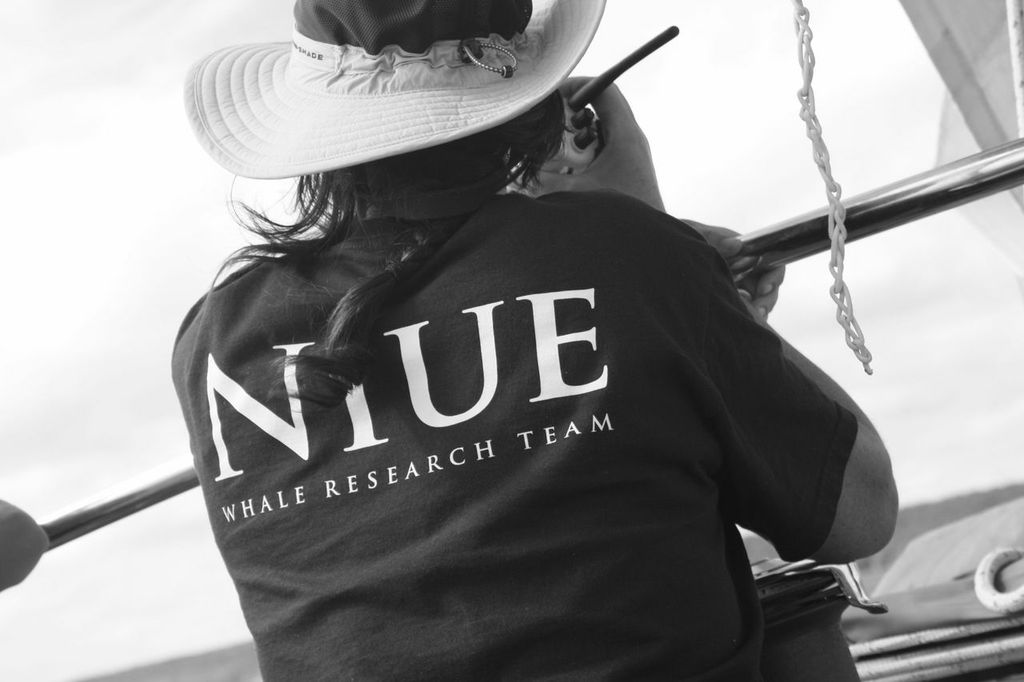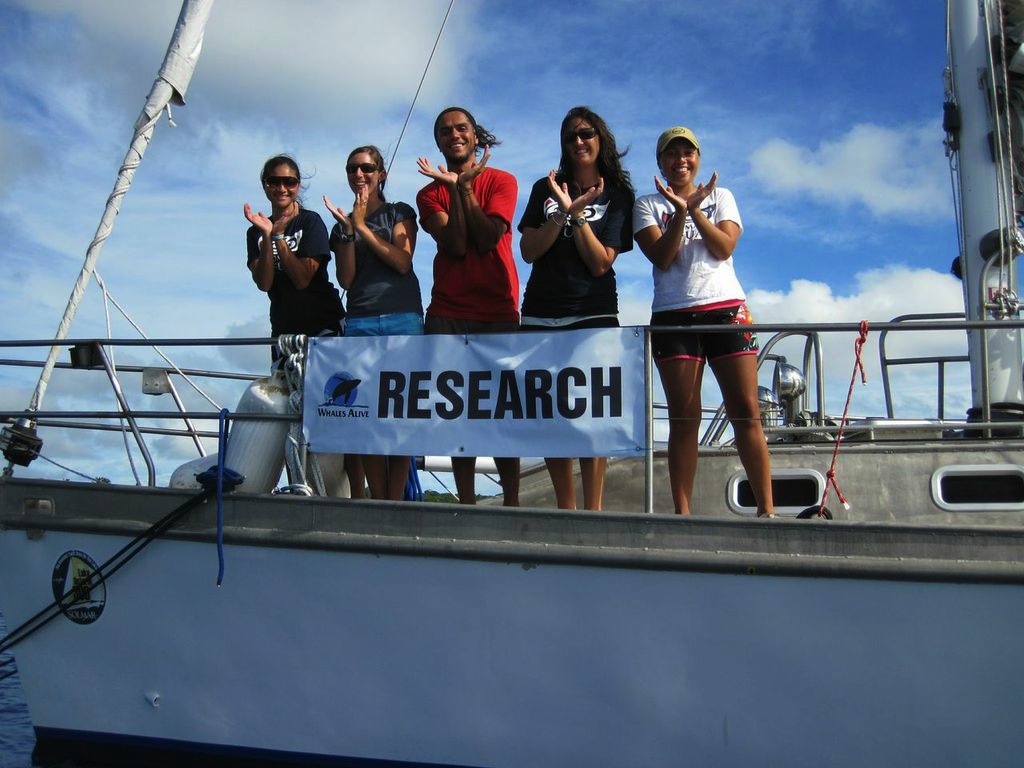
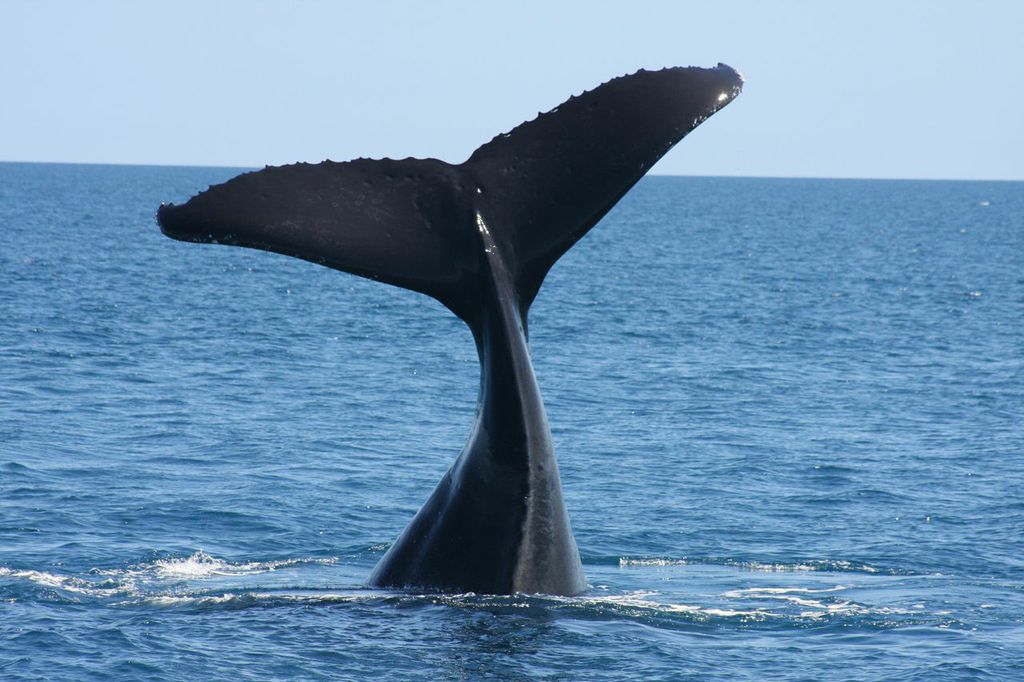
Whales brought me to Byron Bay. Recently, I began to contemplate my first forays in whale conservation programs and how – through a mixture of persistence, dumb luck and emails to strangers – this Melbourne native became involved in the Niue Whale Research Project (NWRP).
In 2010, despite having no scientific or research experience, I suddenly found myself on a boat in the middle of the world’s largest ocean, looking for whales and counting my lucky stars. I found whales in much the same way I imagine a hipster might find facial hair: it changed the course of my life.
A couple of months later, when I returned to Australia hooked on the buggers, the big city didn’t make sense for me anymore so I took a cue from whales, packed up the car and migrated north to warmer, whale-ier shores. Niue and Byron have quite a few things in common, it turns out. Niue is a tiny Polynesian nation, a single limestone island measuring about 70km around, in the middle of the Pacific. Byron is also a kind of island, separated from the outside world in a sense by culture and its sheer natural beauty.
The two communities swell with tourists from around the world for half of the year, relying largely on tourism to keep their economies turning. And, both play host to some of the world’s most majestic creatures each winter as whales migrate north from their Antarctic feeding grounds to tropical waters.
While Byron locals claim a special kind of love of our whales, Niueans hold them culturally ‘tapu’, or sacred, and have traditions and stories involving whales dating back centuries. Being so isolated geographically, Niue is an important place for the endangered Oceania Humpback Whale, many of which pass by to rest or nurse their young during the long perilous migration.
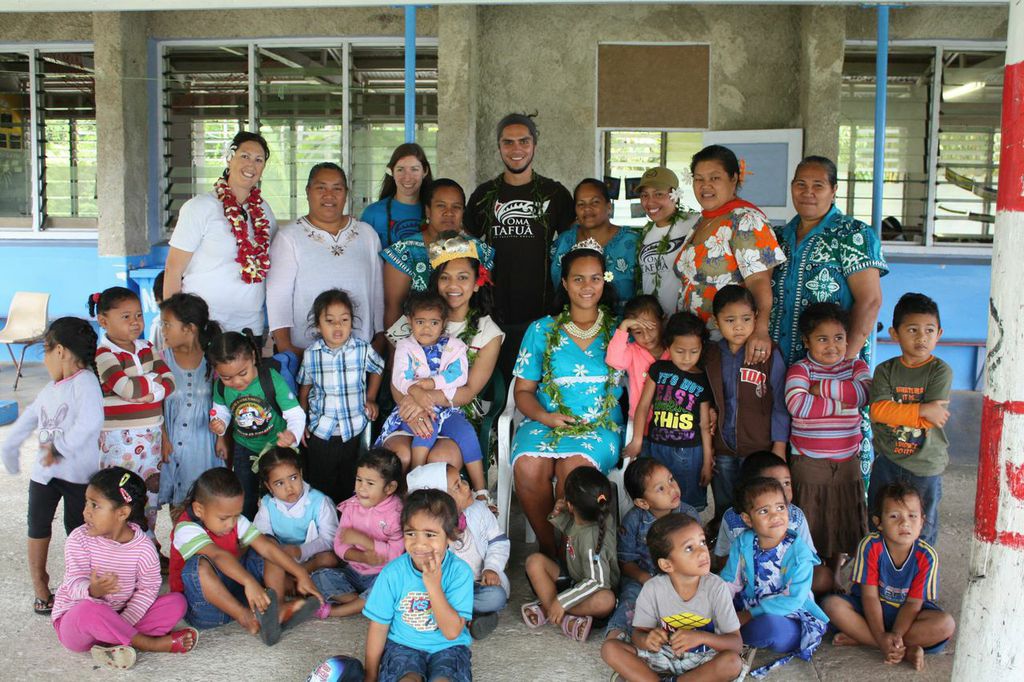
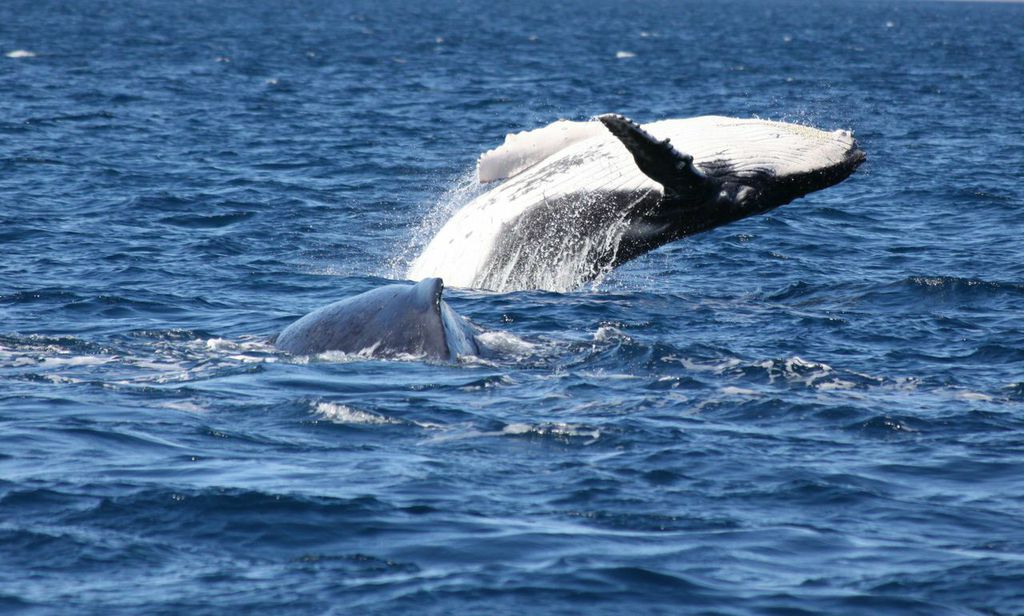
The NWRP began in 2008 as a partnership between Niuean conservationists and international volunteers. It is led by marine scientist and another Byron Bay local Olive Andrews, and Fiafia Rex ofthe Niuean organisation Oma Tafua (‘To Treasure Whales’). The NWRP aims to combine science with government and community outreach, to support Niue’s whale sanctuary and to strengthen conservation programs throughout the country.
Humpback whales, of course, are the most charismatic of the large whales, known for their acrobatic behaviours and haunting whale song. Each year Byronians play witness as thousands of humpbacks pass the Cape safely, and moreover reap the financial and social rewards involved in welcoming visitors from all over the world to enjoy them also. We boast several responsible tourism operators and have strict regulations and guidelines which allow our whales to swim freely beneath the lighthouse’s watchful eye.
We can view breaching whales from the Easterly Point, or take a boat or kayak out on the water to witness them close up. At the most crude level, we are simply incredibly fortunate that our whales – which are estimated to number between 14-17,000 animals – are recovering from the historical horrors of whaling and exploitation. The reality for our neighbours in the Pacific Islands however, is that few countries have the capacityto support the long term programs needed to protect and understand their whales.
Unlike their Australian cousins, Oceania Humpback Whales are not recovering from past exploitation, languishing at an estimated 2,000 animals. In 2003 the Government of Niue declared a national whale sanctuary in the country’s waters and in supporting the objectives of the Sanctuary, the NWRP hopes to assist in their recovery. Of course, that will take time, but by identifying species and individual animals and recording behavioural patterns where they exist right now, we can ensure that appropriate protection measures are in place moving forward. This demonstrates another marked difference between Australia and Pacific Island countries; over the last few decades, vital research has been established in Australia by dedicated individuals like
Byron’s Trish and Wally Franklin, but only much more recently have researchers and volunteers been able to begin building these knowledge bases in remote islands like Niue. And, with conservation funding even more scarce in the Pacific than here in Australia, the future of this valuable work is never guaranteed. The truth is that while Byron’s humpback whales are by no means “saved”, their cousins to the east are facing an even more dire outlook.
The International Union for the Conservation of Nature (IUCN) – the body which monitors a species’ conservation status – recently identified the Oceania Humpback Whale as a species of greater international concern, while simultaneously downgrading Australian Humpbacks as species of lesser concern. The battle for humpback conservation it seems, is shifting to the Pacific. This September, if we can raise the funds, the Niue Whale Research Project will again assemble a small team of volunteer researchers on the island, to continue trying to protect and understand some of the world’s endangered great whales.
If you’d like to help us, you can contribute by visiting our crowd funding campaign http://igg.me/at/NWRP/x I came to Byron Bay for whales, and as most of us know, they do not disappoint in this town. But the magnitude to which this town is able to enjoy and benefit from our whales reminds me often of a place not so different, and in some ways not so fortunate. One day, I’d like to say that the Oceania Humpback Whale is doing well, and bouncing back. Right now though, it will take a lot of work and a lot of support to make that happen.
Photo’s and story by Ben Parangi
